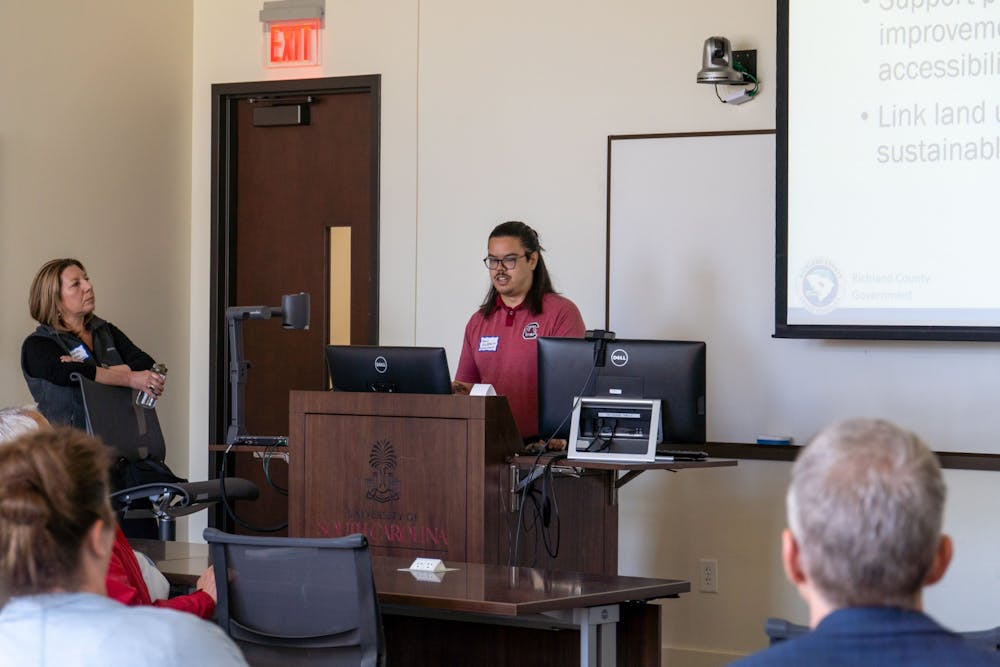On April 1, the USC School of Law hosted the Climate Ready Columbia event where passionate students, faculty, adults and organizations came together to discuss energy efficient solutions for the community.
The event tackled issues surrounding climate change and encouraged meaningful conversations about what can — and is being done — in the city of Columbia.
“What we do during our lifetimes will matter to our descendants for many generations. In fact, the next two decades will very likely decide the trajectory of humanity for the foreseeable future,” Bob Petrulis, the Chairman of Columbia’s Climate Protection Action Committee, said.
Columbia’s biggest goal is currently the “Ready for 100 Pledge.” This pledge, adopted by the City Council, is holding the city accountable for running on 100% clean energy by 2036.
Columbia was the first city in South Carolina to take on this challenge when in 2017 the city announced plans to reach that 100% goal in just 19 years.
"With only 14 years remaining, the clock is ticking and there's a huge amount of work to do to achieve the goal," Petrulis said.
One group working towards this goal is The Climate Protection Action Committee (CPAC). CPAC is a group of volunteers who brainstorm ideas on making the city more environmentally friendly. Meetings are open to anyone, and the ideas discussed are brought to the city council in hopes of reform.
Since the pandemic, CPAC started hosting meetings online which drastically increased community involvement. With busy schedules, not everyone could attend in person meetings. More people who wanted to get involved could by simply attending meetings from their computers.
"There have been times (CPAC) has been very active, and there have been times when our group laid a little low," Mary Pat Baldauf, the sustainability manager of Columbia, said.
With more staff members able to get involved, Baldauf said the CPAC can be more impactful.
Currently, a program called Star Communities and the US Green Building Council have come together to create something called Leadership in Energy and Environmental Design (LEED) for cities, which is a premier sustainability rating system.
To achieve certification, a city can earn points by working on projects tackling water consumption, energy use, waste, transportation and human experience. Additionally, after certification a city can move up to other levels such as silver, gold and platinum ratings.
CPAC helped bring Columbia to its certification, and they are hoping to one day reach the platinum rating.
Despite the progress, there are still challenges. Unlike other states who have laws and benchmarks to keep track of consumer behavior and energy usage, South Carolina does not.
“We don’t have specific goals or targets in South Carolina,” Sara Bazemore, the Director of the SC Energy office said.
What South Carolina does have is the stakeholder process. This process brings together people in different fields with different opinions to talk, and correspond with the State Energy Office and state energy plan on environmental policy.
“It is wonderful to see the impact that our college and our university can have in this space partnering with community partners, with state and local officials, with national officials and with civic organizations,” Joel Samuels, Dean of the College of Arts and Sciences at USC, said.
For more information, visit energy.sc.gov, and solar.sc.gov. For energy saving tips, visit energysaver.sc.gov.

